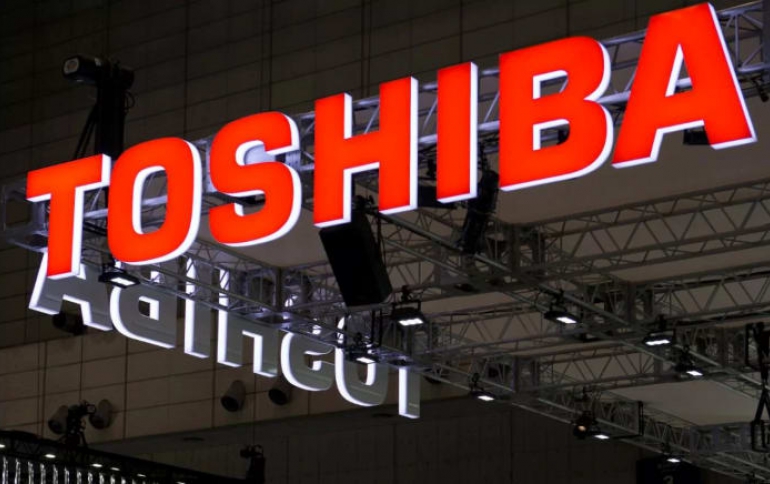
Toshiba Offers Ultra-small e-MMC Embedded NAND Flash Memory Products
Toshiba today announced the launch of a class of e-MMC embedded NAND flash memory products that are among the world's smallest. The new products integrate NAND chips fabricated with Toshiba's 15 nm process technology and a controller to manage basic control functions for NAND applications into a single package.
Fully compliant with the latest JEDEC e-MMC standard, the new chips are designed for application in a wide range of digital consumer products, including smartphones, tablet PCs and wearable devices. Toshiba will start sample shipments of the 16 gigabyte (GB) products today, with 8GB, 32GB, 64GB, and 128GB products to follow. By utilizing the 15nm process technology, the new product's package size is approximately 26 percent smaller than comparable Toshiba products and offers faster read/write performance due to improvements in basic chip performance and controller optimization. The read speed is approximately eight percent faster (max.), while the write speed is approximately 20 percent faster (max.).
The new products feature the JEDECe-MMC compliant interface, which handles essential functions, including writing block management, error correction and driver software. Additionally, new features among them BKOPS control, Cache Barrier, Cache Flushing Report, and Large RPMB Write, are applied to the new products to enhance usability.
The 8GB to 64GB products are sealed in a small FBGA package measuring just 11mm x 10mm and are suitable for smartphones, tablet PCs and wearable devices where miniaturization and weight saving are a requirement.
In related news, Yasuo Naruke, executive officer, corporate executive vice president of Toshiba, and president of Semiconductor & Storage Products Company, announced Toshiba's plan to strengthen its enterprise SSD business targeted mainly at data centers.
Speaking at a recent meeting held in Toshiba's headquarters in Tokyo Sept 29, 2014, Naruke said that the cost per bit of high-speed SSDs will become lower than that of 15,000rpm high-speed HDDs in 2016 and that of 2.5-inch 10,000rpm HDDs in 2021. So, the company considers that the replacement of enterprise HDDs by SSDs will accelerate in or after 2015.Toshiba expects that the cost per bit of SSDs will become lower than that of low-speed (about 7,000rpm), large-capacity near-line HDDs (3.5 inch) in about 2025.
In the market for clients especially for personal computers, Toshiba also plans to improve its cost competitiveness by using TLC (3 bits per cell) NAND for its SSDs.



















